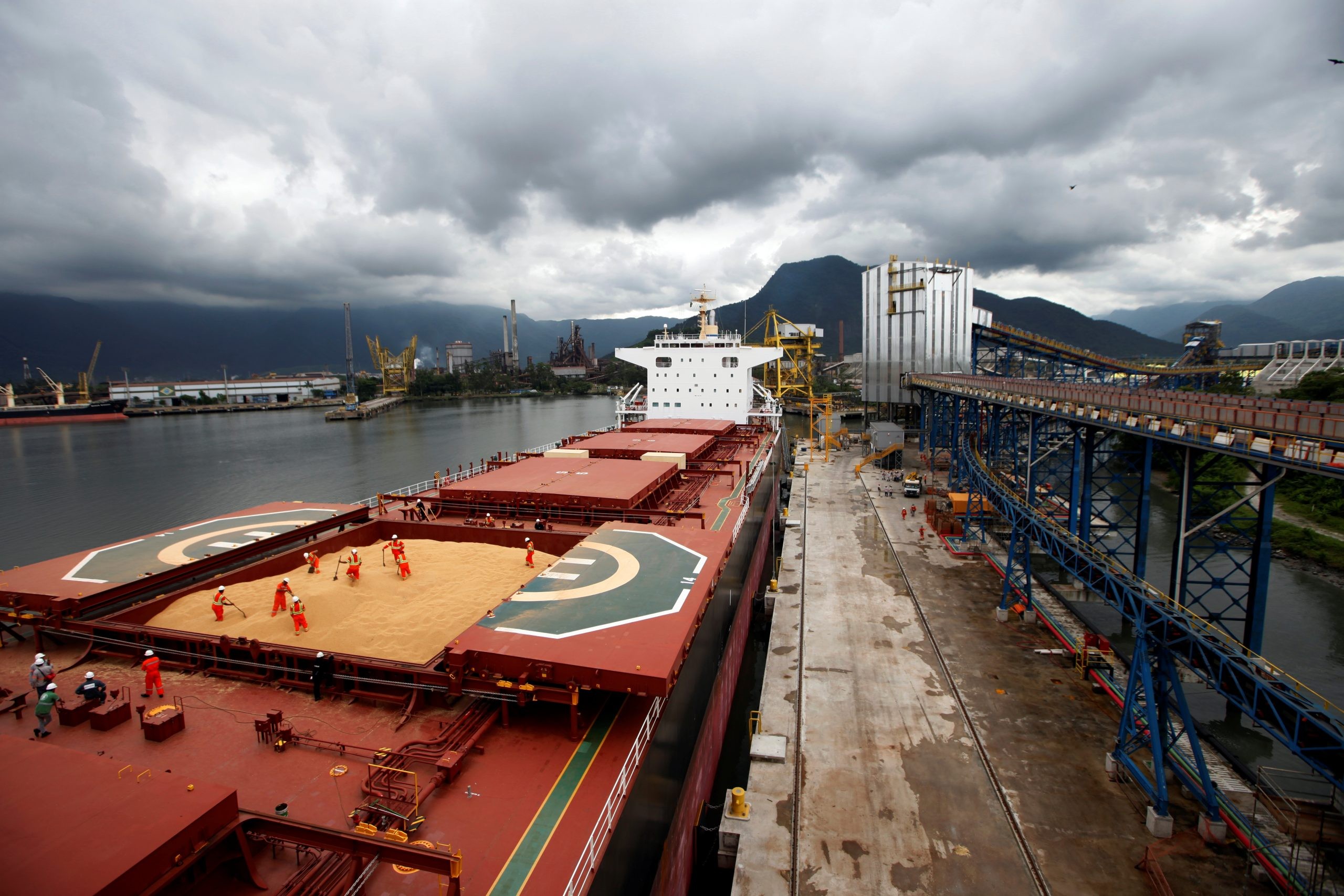2.7 million metric tons of grain and other foodstuffs were moved from Ukraine under Black Sea Grain Initiative

Since 1 August 2.7 million metric tons of grain and other foodstuffs were moved from Ukraine through the Black Sea Grain Initiative. Here is the progress report prepared by the Joint Coordination Centre which closely monitores the inbound and outbound movement of vessels through the maritime humanitarian corridor in the Black Sea.
Black Sea Grain Initiative was launched by the Russian Federation, Türkiye, Ukraine, and the United Nations on 22 July 2022 to enable the resumption of exports from Ukraine of grain, other foodstuffs, and fertilizer, including ammonia, through a safe maritime humanitarian corridor from three key Ukrainian ports, Chornomorsk, Odesa and Yuzhny/Pivdennyi, in the Black Sea to the rest of the world. The Initiative is based on the International Convention for the Safety of Life at Sea, 1974, as amended, (SOLAS) and the International Ship and Port Facility Security Code (ISPS Code). The Joint Coordination Centre (JCC) was established under the Initiative in Istanbul and comprises senior representatives from the Russian Federation, Türkiye, Ukraine, and the United Nations.
As of noon on 12 September, 2.7 million metric tons of grain and other foodstuffs were moved from the three Ukrainian ports. So far, 53% of the cargo was corn, 23% wheat, 12% sunflower products, 6% barley, 5% rapeseed, 1% soya beans, with other products making up the remainder.
Destinations: 28% to low and lower-middle income1 countries: Egypt (10%), Iran and India (5%), Sudan and Kenya (2%), and Djibouti, Lebanon, Somalia, and Yemen (1%); 27% to upper-middle income countries: Türkiye (19%), China (8%), and Bulgaria (<1%); and 44% to high-income countries: Spain (13%), The Netherlands (8%), Italy (7%), Republic of Korea (5%), Romania (4%), Germany (2%), and France, Greece, Ireland and Israel (1%). Destinations indicated are based on information received at the JCC and may change based on commercial activity. Grains that reach a destination may go through processing and be transhipped to other countries. Detailed movement reports can be found here: https://www.un.org/en/black-sea-graininitiative/vessel-movements On 2 September, the FAO announced that world food prices dipped for the fifth month in a row. The FAO Cereal Price Index decreased by 1.4% from August, a drop driven by a 5.1% decline in international wheat prices reflecting improved production prospects in North America and the Russian Federation as well as the resumption of exports from the Black Sea ports in Ukraine. Since 1 August, the JCC has enabled the safe movement of 122 voyages from Ukraine and 144 voyages to Ukraine. As part of its responsibilities, the JCC has been closely monitoring the inbound and outbound movement of vessels through the maritime humanitarian corridor in the Black Sea. On several occasions, it has observed vessels deviating from the corridor and it has responded appropriately by contacting captains and advising them to follow the coordinates. In some cases, the JCC made formal contact in writing when the same vessels deviated several times. The JCC is also providing pre-transit briefs to inbound captains during the inspection process in Istanbul. The JCC continues to assess and review the procedures put in place to ensure the safe passage of vessels through the maritime humanitarian corridor. On 25 August the JCC revised the Maritime Humanitarian Corridor and issued fresh procedures. A first UN World Food Programme-chartered vessel, BRAVE COMMANDER (IMO 9136931), docked in Djibouti on 30 August to support the drought response in the Horn of Africa. A second WFP-chartered vessel, KARTERIA (IMO 9236092) loaded with 37,500 metric tons of wheat sailed on 30 August and docked in Türkiye on 3 September, where the wheat will be milled to flour and shipped to Yemen in two different vessels. This flour will then be loaded onto a different ship that will head to Yemen to support World Food Programme’s humanitarian response there. A third WFP-chartered vessel, IKARIA ANGEL (IMO 9194397) is en route to Chornomorsk, where it will load 30,000 metric tons of wheat destined for Djibouti, further supporting humanitarian efforts in the Horn of Africa.
Read also
Wheat in Southern Brazil Impacted by Dry Weather and Frosts
Oilseed Industry. Leaders and Strategies in the Times of a Great Change
Black Sea & Danube Region: Oilseed and Vegoil Markets Within Ongoing Transfor...
Serbia. The drought will cause extremely high losses for farmers this year
2023/24 Safrinha Corn in Brazil 91% Harvested
Write to us
Our manager will contact you soon



